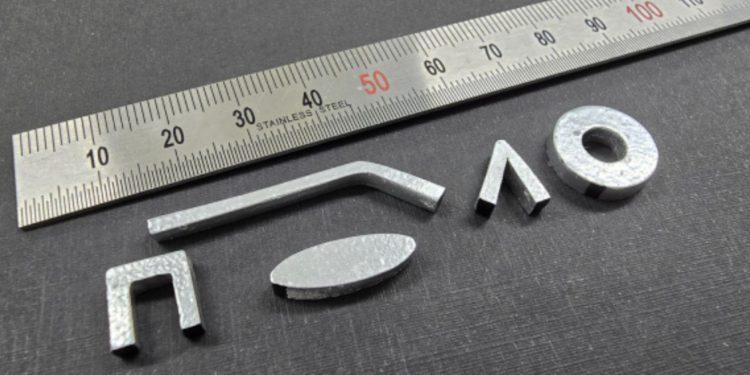Samsung Electro-Mechanics has announced the successful development of the world’s first ultra-small all-solid-state battery designed for wearable devices, an innovation called a “dream battery.”
The battery’s impressive energy density of 200 watt-hours per liter, the highest in the industry, allows a one-liter battery to deliver 100 watts of power for one hour.
After over three years of research and development, Samsung Electro-Mechanics has produced prototypes and is currently testing them with customers. The company plans to initiate mass production of this small-sized all-solid-state battery in 2026 and expects to debut its first all-solid-state battery smartwatch, potentially a Galaxy Watch, in the same year.
The new battery technology is expected to be first integrated into Samsung Electronics’ wearable devices, including the Galaxy Ring, Galaxy Watch, and Galaxy Buds.
The all-solid-state battery offers advantages over traditional lithium-ion batteries. A solid, non-flammable electrolyte provides enhanced safety and is less susceptible to external shocks. Furthermore, the battery’s flexibility allows it to be produced in various shapes, including flat, polygonal, and curved forms, making it highly suitable for wearables.
Samsung Electro-Mechanics has utilized its multilayer ceramic capacitor (MLCC) technology expertise to create a compact, oxide-based solid-state battery that achieves the same energy density as lithium-ion batteries in a smaller footprint. This innovation comes after securing over 40 patents in the past three years, covering crucial aspects like the solid-state electrolyte composition and battery structure design.
President Jang Deok-hyun emphasized this strategy during CES 2024, highlighting the company’s focus on innovative business sectors, including all-solid-state batteries and solid oxide electrolysis cells.
The new battery technology promises to address the limitations of conventional lithium-ion batteries, which struggle with miniaturization and flexibility. Samsung has minimized volume changes during charging by employing a thin stacking method for the electrodes and solid electrolytes, negating the need for extra space or separators. This approach enhances design freedom while lowering the risk of fire.
Recently, it obtained a patent in South Korea for enhancing moisture resistance in oxide electrolytes. Experts view this progress as promising, suggesting that advancements in all-solid-state battery technology could also benefit the electric vehicle (EV) sector, where larger battery sizes typically face challenges such as high interface resistance.
The all-solid-state battery’s low explosion risk makes it particularly suitable for wearables that come into direct contact with the body. Samsung’s achievement is seen as a significant milestone in its new business initiative, “Future Project,” which aims to drive innovation in various fields, including mobility, robotics, artificial intelligence, and energy.
While Samsung Electronics is likely to be the initial customer, other major tech companies such as Apple, Google, and Xiaomi could also seek to incorporate this technology into their wearable devices. As the market for smart wearable batteries is projected to grow from $3.5 billion in 2023 to $9.2 billion by 2030, Samsung Electro-Mechanics aims to maintain price competitiveness through ongoing technological advancements and customer partnerships.
Also Read:
- LG and Ricoh Unite to Offer Digital Solutions for Modern Workplaces
- South Korean Shipbuilders to Bring Advanced Technology to India’s Maritime Sector
- KT, LG, and Vodafone Join Sisvel’s Patent Pool to Boost Cellular IoT Innovation
- South Korea Summit Outlines Global ‘Blueprint’ for AI in Military Use
- Kakao Prepares to Launch AI-Enhanced Kakao Work 2.0 for Smarter Workplace Management







